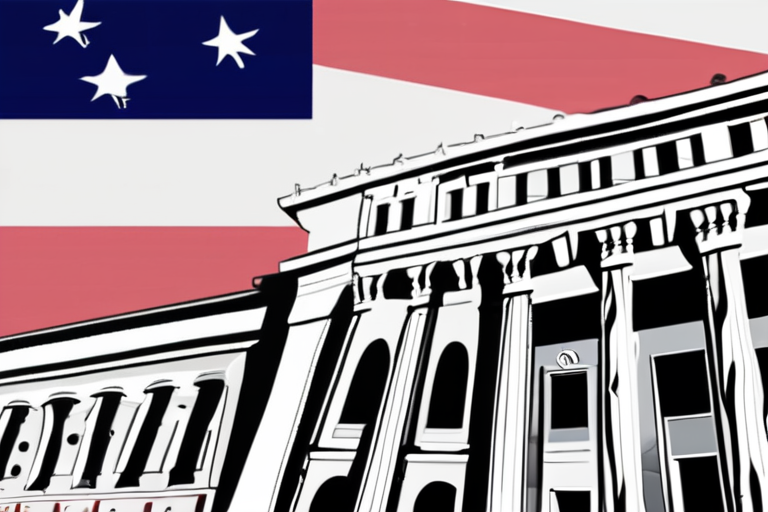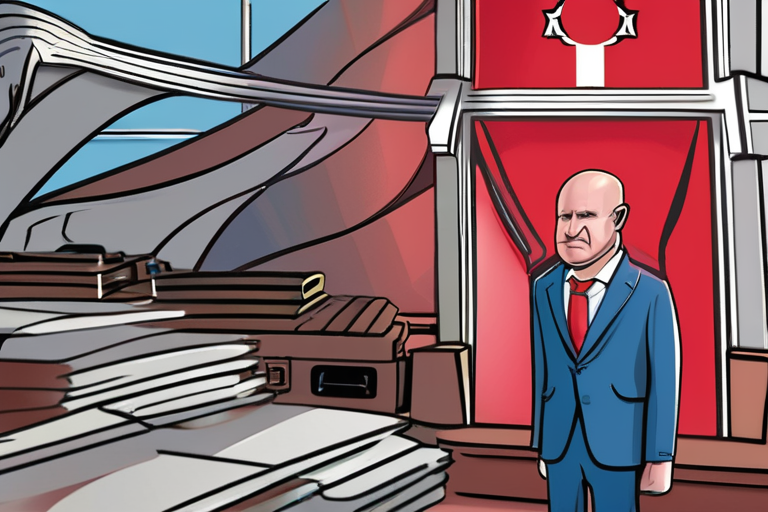US Finalizes $20 Billion Currency Swap with Argentina Amid Economic Crisis
WASHINGTON, D.C. - The United States Treasury announced Thursday that it has finalized a $20 billion currency swap framework with Argentina's central bank in an effort to stabilize the country's faltering economy.
According to a statement released by Treasury Secretary Scott Bessent on X, the deal was reached after four days of meetings between Bessent and his Argentine counterpart, Luis Caputo. "Argentina faces a moment of acute illiquidity," Bessent said. "The international community, including the International Monetary Fund, is unified behind Argentina and its prudent fiscal strategy, but only the United States can act swiftly. And act we will."
The currency swap framework allows the US to purchase Argentine pesos in exchange for dollars, providing a much-needed injection of liquidity into the country's economy. The deal comes as Argentina struggles to recover from a severe economic crisis that has seen inflation soar and the peso plummet in value.
Argentina's President Javier Milei expressed his gratitude to Bessent on X after the deal was announced, saying: "We appreciate the support of our American friends during this difficult moment for our country."
The US move is seen as a significant development in the global economic landscape. The International Monetary Fund (IMF) has been working with Argentina to implement economic reforms and stabilize its economy.
"The IMF welcomes the agreement between the United States and Argentina," said an IMF spokesperson. "This deal demonstrates the international community's commitment to supporting Argentina's efforts to restore stability to its economy."
The currency swap framework is a common tool used by countries to manage their foreign exchange reserves and maintain economic stability. The US has previously used such agreements with other countries, including Mexico and Brazil.
As part of the agreement, the US will provide $20 billion in liquidity to Argentina through the purchase of pesos. In return, Argentina will agree to implement economic reforms aimed at reducing its fiscal deficit and stabilizing its currency.
The deal is seen as a significant step towards resolving Argentina's economic crisis, which has been exacerbated by a severe drought, rising inflation, and a decline in investor confidence.
In related news, the Argentine Congress recently overturned President Milei's veto on funding for emergency measures to address the country's economic crisis. The move was seen as a crucial step towards implementing reforms aimed at stabilizing the economy.
As the US-Argentina deal takes effect, economists are watching closely to see how it will impact the global economy. "The implications of this agreement go beyond Argentina's borders," said Dr. Maria Rodriguez, an economist at the University of Buenos Aires. "It sets a precedent for other countries facing similar economic challenges and highlights the importance of international cooperation in times of crisis."
The US-Argentina currency swap framework is set to take effect immediately, with the first tranche of $10 billion expected to be disbursed within the next 48 hours.
Background:
Argentina's economy has been struggling since 2018, when a severe economic crisis led to a sharp decline in investor confidence and a subsequent devaluation of the peso. The country's inflation rate has soared, reaching over 50% in recent months, while its currency has plummeted in value.
The US-Argentina deal is seen as a significant development in the global economic landscape, with implications for other countries facing similar economic challenges.
Additional Perspectives:
"This agreement demonstrates the international community's commitment to supporting Argentina's efforts to restore stability to its economy," said an IMF spokesperson.
"The US move is a welcome development for Argentina and a testament to the strength of our bilateral relationship," said a US State Department official.
Current Status and Next Developments:
The US-Argentina currency swap framework is set to take effect immediately, with the first tranche of $10 billion expected to be disbursed within the next 48 hours. Economists are watching closely to see how the deal will impact the global economy and whether it will provide a much-needed boost to Argentina's struggling economy.
Sources:
US Treasury Department
Argentine Central Bank
International Monetary Fund (IMF)
University of Buenos Aires
*Reporting by Aljazeera.*



 Hoppi
Hoppi

 Hoppi
Hoppi

 Hoppi
Hoppi

 Hoppi
Hoppi

 Hoppi
Hoppi

 Hoppi
Hoppi











